
Bilingualism and Children with Autism Spectrum Disorders
Are you wondering if bilingualism for children diagnosed with Autism Spectrum Disorder is difficult?
Read original research about bilingualism and children with ASD published by Park at
From the instant a child is diagnosed with autism spectrum disorders, parents are required to make countless decisions. Especially, what language to use with their child. Parents, therapists, and educators make choices about language, treatment, and instruction for bilingual children with ASD every day. However, they might not know the research findings to support their decisions. While there is a misconception that bilingualism for children with ASD would only confuse them and lead to further delay in language development, it has resulted in families, teachers, and clinicians using only one language (typically, English and not the primary language) with these children.
Read more about raising children in multi-lingual environments
Why is using ONLY ONE LANGUAGE recommended most often?
Typically, the recommended language is English, as it is the dominant language of education and treatment services
Essentially, the notion that becoming bilingual is too challenging for children with ASD and might even cause additional language delays is the major reason for using only one language (Bird, Lamond, & Holden, 2011; Yu, 2009).
What are some PERCEIVED advantages and Disadvantages of Bilingualism?
Bust some myths related to learning to talk
What are the Challenges and Concerns of Raising Children with ASD Bilingually??
Across the globe parents of children with ASD have listed very many concerns regarding exposing their children to bilingualism. Let’s look at them …
- The development of Receptive and Expressive language is delayed in ASD. Considering this many parents feel that using two or more languages would be too difficult and confusing for the child
- Also, tt is an unreasonable demand given their developmental disabilities
- Additionally, parents do not want to confuse the children with two or more languages
- Parents fear that child might not become fluent in the second language
- Moreover, most educational and intervention services are available ONLY in English. Native language alternatives are rarely available. Hence, parents are left with limited choice for opting two or more languages.
- Parents feel that English is necessary to function in society. With the prevailing beliefs about the complexity of learning two languages, they stick to one language- English.
Despite all these fears and apprehensions regarding the complexity of learning a second language …. Why is learning a second language important?
In 2021, it was found that 60% of the world population can speak more than one language fluently. At least 43% of the world population can fluently speak two languages, 17% can speak more than two languages. Only 40% of the world population is fluent only in one language.
Here are some views on the importance of bilingualism and practical examples narrated by parents:
“When we talk in our native language at the dinner table my child with ASD gets disinterested and engages in watching TV or other activities!”
“I stopped taking my child with ASD to the church as he does not understand the sermons in our native language!”
“Wish I could use my native language while playing with my child with ASD. I feel more confident and expressive in my native tongue than in English. I am not confident in speaking English!!!”
- These examples tell us that depriving a child the exposure to the native language or a second language, deprives him/her of many opportunities of social interactions and cultural experiences which are important for socio-emotional development.
- Many bilingual parents find it difficult to make an emotional connect with the child in a non-native language such as English. Social interaction between parents and children is of utmost importance in the language development of a child. Thus, deprivation of a second language or native language might affect the social interactions between the parents and the child with ASD.
- Also, it was found across research that when exposed to the same language at home and outside, proficiency is better.
Exposure to languages in bi/multilingual families helps in
- Cultural experiences
- Social interactions
- Ethnic identity
- Emotional connect
Can Children with ASD Become Bilingual Without Further Delaying Language?
Some research across the globe suggests that there may not be negative effects of bilingualism in children ASD. Many researchers have found no differences between children with ASD from bilingual families and their monolingual peers in the following areas:
- Conceptual vocabulary
- Expressive and receptive communication skills
- Socio-communication levels
- Number of words, presence of word combinations, babbling or vocalisation
- Age of first words, first phrases and communicative abilities
In addition, some interesting findings about Bilingual children with ASD were:
- They had a larger total production vocabulary
- They demonstrated more gestures, pointing, more leading to desired objects and greater pretend play
- Bilingual toddlers with ASD cooed or babbled more often than a monolingual peers
Some concluding remarks to help you make a better decision
- Research does not support many misconceptions about bilingualism in children with ASD yet. They are more of faulty beliefs than proven facts.
- Though research on bilingualism in ASD is rudimentary, the existing research indicates that ‘bilingualism does not lead to additional language impairments in children with ASD’.
- Research does not support or advocate the use of ONLY English language for educative or rehabilitation purposes.
- Focusing on providing a bilingual environment at home, school and social situations might be beneficial rather than considering it a disadvantage.
- Further research might resolve most conflicts on this issue… always lookout for new information!
- “Interventions for children and adolescents with stuttering” - April 7, 2023
- What is Speech Therapy and its effect? - December 21, 2022
- Dysphagic disorder in a cohort of COVID-19 patients - December 13, 2022

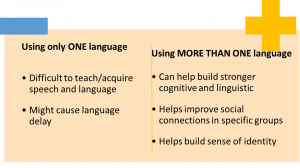
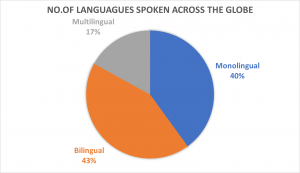
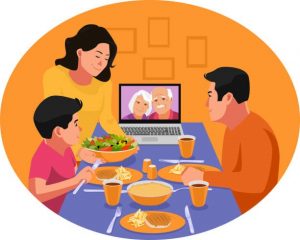
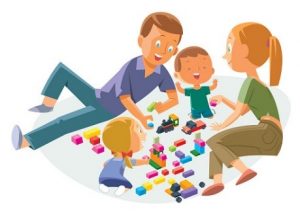
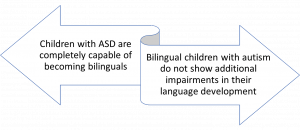
Leave a Comment
(0 Comments)